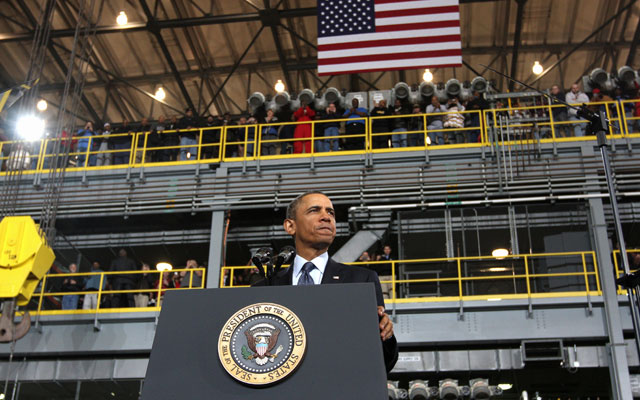Sequestration? What Sequestration?
T. Elliot Gaiser /
President Obama claimed that millions of Americans would suffer if Congress failed to prevent the $85 billion in automatic budget cuts known ominously as “sequestration.” But according to David Fahrenthold and Lisa Rein of The Washington Post, sequestration “has not produced what the Obama administration predicted: widespread breakdowns in crucial government services.”
One reason the predictions did not come true is because the sequestration cuts reduce the increase in federal spending by only 2.4 percent over 10 years. As Heritage President Jim DeMint described it, the cuts are like reducing a “Big Mac meal by 2 percent—pushing aside a couple French fries and gobbling up the rest.”
Agencies did find room for the sequestration cuts by trimming millions in non-essential spending or through saving gimmicks. For instance, according to the Post:
- The Department of Homeland Security shifted money around to avoid 14 days of unpaid furloughs for Customs and Border Protection agents.
- The U.S. Geological Survey cut $2.7 million in conference expenses to avoid a predicted shutdown of 350 gauges that predict floods.
- Congress cut $253 million from the Federal Aviation Administration’s Airport Improvement Program—which sends money to maintain airports, some of which average less than one flight per week—to prevent air traffic controller furloughs and flight delays.
- The Justice Department cut $300 million in “expired balances”—unspent money Congress allocated for specific programs that expired. Rather than reduce actual spending, it simply gave back funds it was not otherwise authorized to use.
However, some of the cuts have weakened the military. “At the Pentagon, officials had predicted that they would reduce training for the Army, flying time for the Air Force, and ship deployments for the Navy. They did all three,” write Fahrenthold and Rein.
While future cuts can be redirected to avoid gutting defense, the Environmental Protection Agency, Transportation Security Administration, Department of Energy, Department of Education, and National Institutes of Health all have room to shrink.
Yet again, doomsday predictions from Washington politicians have proven mostly overblown. However, rising debt continues to pose a real threat to economic growth. Instead of trying to preserve government largesse through overwrought warnings, President Obama should take the lead in real spending reform to save the American dream.

